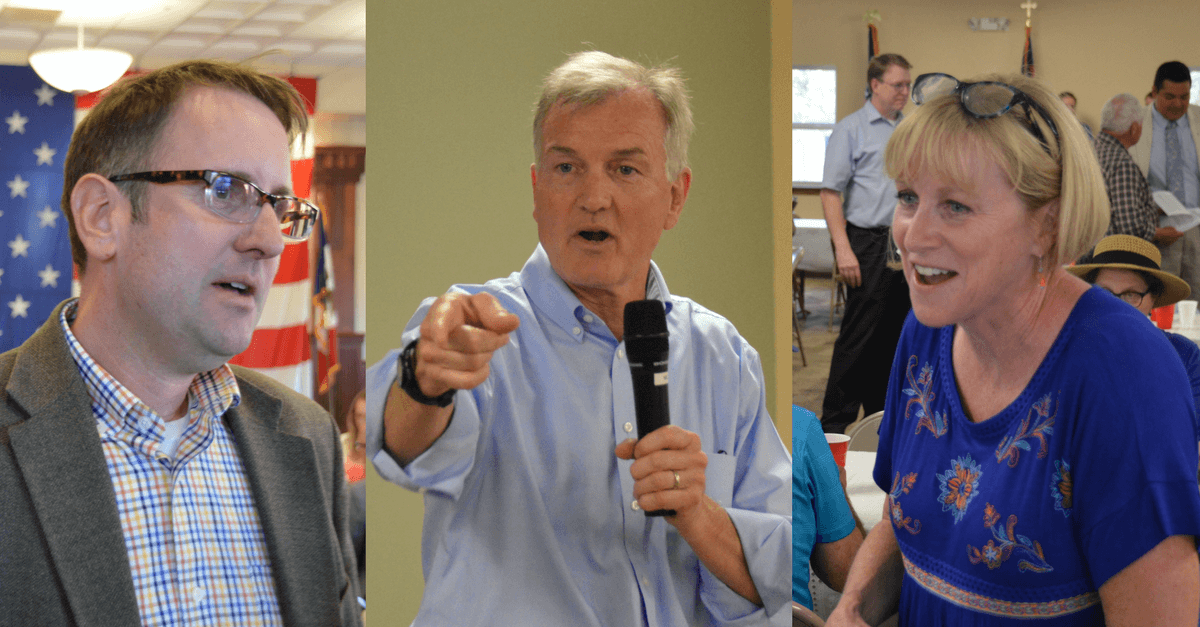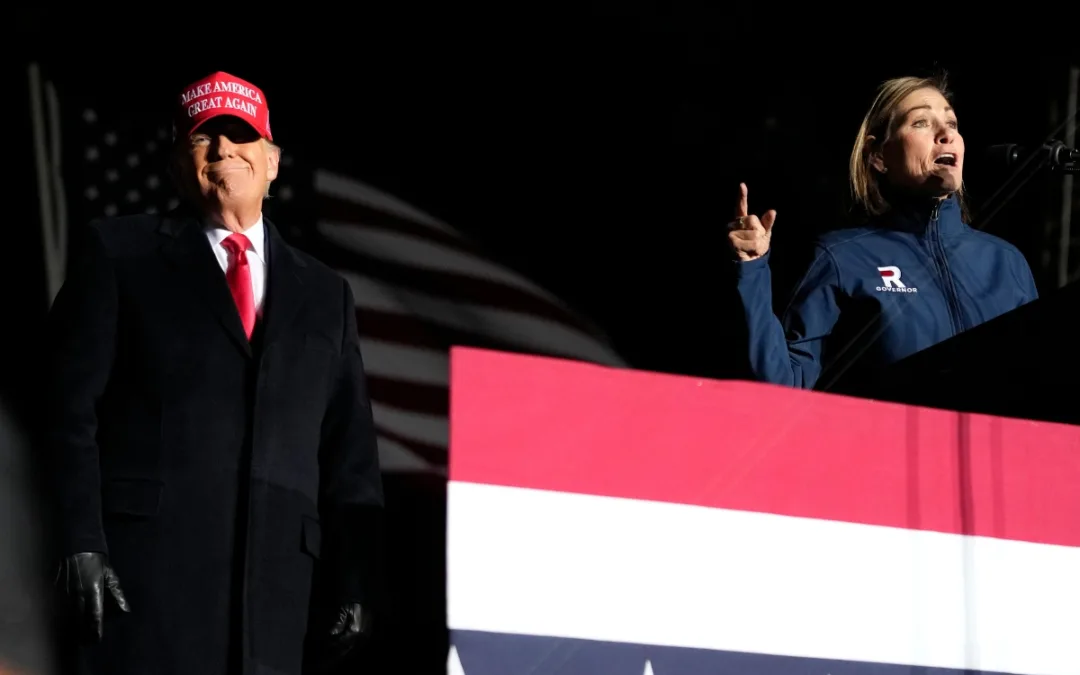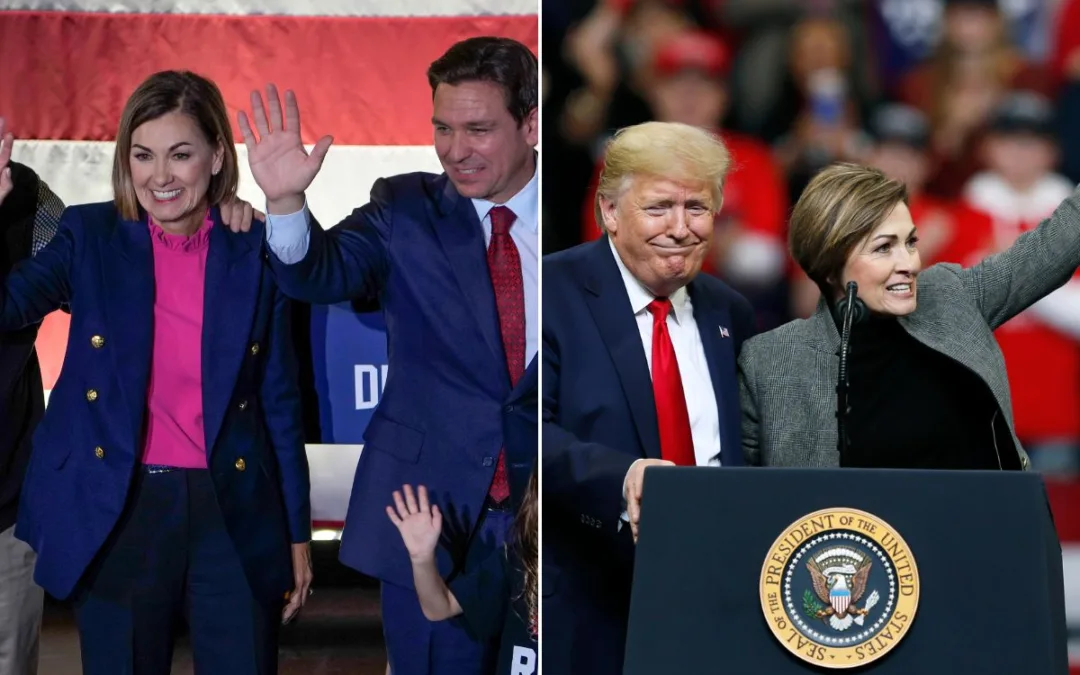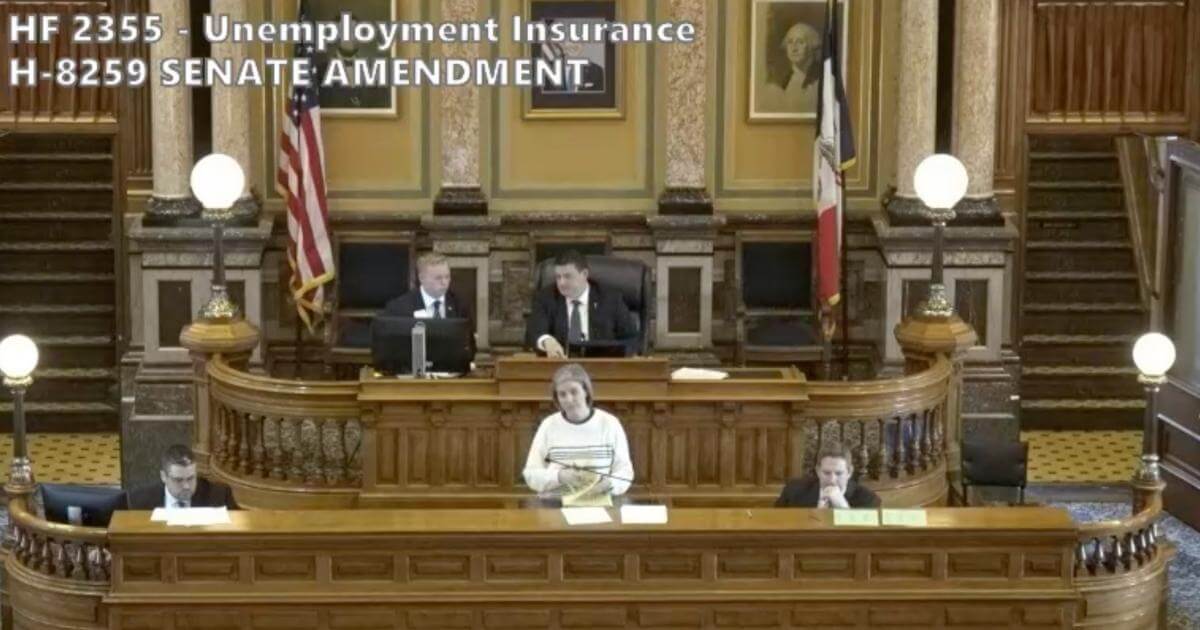
What will general election voters be looking for in 2018? And will Democratic primary voters consider that? If you look at the political situation in Iowa and nationally right now and are positive that you have the answer, you’re probably fooling yourself. A week in politics is a lifetime, and we’ve got 73 more of them until November 8, 2018. Any number of things could shift the mood of the electorate – in favor of Democrats, in favor of Republicans, or in favor of a certain type or profile of candidate.
Recall that after John Kerry’s defeat in 2004, many Democrats felt that a southern, moderate-looking candidate like John Edwards was the solution to winning Midwest swing states. Instead the party nominated a guy with the name Barack Hussein Obama and won big. Republicans’ main takeaway from their 2012 loss was that they needed better minority outreach, especially to the growing Hispanic population. Then they blew that all up with Donald Trump and still won.
So let’s take a look at how Iowa Democrats’ gubernatorial primary could be shaped by the national and state mood of the electorate, and who could end up as best-positioned to take on Kim Reynolds.
I should note, however: few of Democrats’ gubernatorial candidates fit into a neatly-defined profile (example: John Norris is a longtime Iowa insider, but was to the left of most Democratic leaders long before the Bernie Sanders revolution came along). There are ways almost every candidate can fit into these categories. So I’m taking liberties with some of this, but hopefully it’s insightful all the same.
The Steady, Experienced, No-Drama Leader
Right now, the party’s left is spoiling for an ideological fight in 2018. However, consider what the country will likely go through over the next year and a half: a constantly under-siege president at risk of impeachment, an inept administration that can barely function, more raucous town halls after the GOP’s final healthcare bill, and a continuation of angry, partisan warfare. By the time November 2018 rolls around, voters may just be sick of it all.
In that situation, voters in the general election (and possibly the primary) may be looking for someone who’s going to bring competence back to government, not embark on another ideological fight. They may want someone who can tone down the rhetoric and get government functioning on a base level again. It’s how someone like Joe Biden (even though he’s said he’s not running) could end up as a good fit in 2020 if he ran as a calm, experienced statesman.
For Iowa, that scenario could benefit someone like Fred Hubbell and John Norris. Hubbell was tasked with cleaning up the Iowa Department of Economic Development after the film tax debacle, and could pitch his business executive experience as proof he’d be a competent, effective manager of Iowa government. Norris is already running on the promise that he’d be ready to “hit the ground running on day one” with his past role as Tom Vilsack’s chief of staff.
Todd Prichard’s “quiet, thoughtful” persona could also appeal to an electorate tired of partisan rancor. And if Iowa’s healthcare situation continues to deteriorate, Andy McGuire’s experience as a healthcare executive could prove she’s the one to fix Reynold’s mess.
The Street Fighter
One common criticism in Democratic circles is that party leaders haven’t fought hard enough for the policies they support. Consultant and polling-driven campaigns have sucked the life and authenticity out of our candidates. Even if voters don’t agree on every issue Democrats are pushing for, they appreciate candidates who have passion and care about something. And leaders like that can create enthusiasm among the Democratic base to boost turnout.
If 2018 is looking like it’ll be a competitive contest in Iowa, and if voters actually care about the huge changes Republicans made at the Statehouse, a tough, scrappy candidate who takes the fight to Reynolds might be best. An electorate looking for change needs someone who can drive home Democrats’ message.
That situation benefits Nate Boulton the most, who came to prominence this session as Democrats’ lead defender on collective bargaining and workers compensation. He saw a lot of enthusiasm when he first announced. If the party’s base remains extremely agitated at Trump and Reynolds, and Reynolds’ handling of budget cuts and Medicaid start to poll terribly, Boulton may be the one who can best take the fight to Republicans in the general.
The Progressive Crusader
Many within the party’s left believe that Democrats have struggled in Iowa and elsewhere because they haven’t gone far enough in laying out a very progressive agenda. $15/hour minimum wage. Single-payer healthcare. Free community college. Opposing oil pipelines. Embracing those issues could bring voters who stopped caring about politics back to the party and energize the left.
If Republicans’ incredibly unpopular AHCA plan is enacted, and if the healthcare mess in Iowa – all the major private insurers plan to pull out in 2018 – isn’t fixed, voters may warm to the single-payer idea. Republicans’ idea didn’t work. Obama’s ACA gave too much power to the health insurers. So why not try this?
Cathy Glasson has positioned herself for this approach. Running on a clear, progressive agenda would set up quite the contrast with Reynolds, as well as provide a vision for Iowa’s future that Democrats can advocate for. There’s been a lot of interest among activists in Glasson’s candidacy since her announcement. If Bernie Sanders’ former supporters decide to continue the fight within the party, they might coalesce here.
If 2018 is looking like a wave election for Democrats in Iowa, some non-Sanders primary voters might be more willing to take a chance on a candidate who will push for the most progressive agenda possible once in office. Alternatively, progressive activists can point to their left-of-center candidates over-performing in rural, red states in special elections to show they’d be competitive in a close contest in Iowa.
Just Win
It’s very possible that Trump’s Iowa win was part of a broader cultural and party allegiance shift that’s been moving beneath the surface in the state for nearly a decade. Turning out the base alone won’t cut it. Going further to the left isn’t actually what voters want. If that’s how people end up seeing 2018, then a candidate’s core electability in a Republican-trending state is key.
If Republicans continue to win special elections around the country and do well or better-than-expected in the 2017 races in New Jersey and Virginia, Democrats here may doubt a national wave is coming. Or, even if one is developing, polling that shows Reynolds and Trump with high approval ratings could sow doubt that Iowa Democrats will benefit from any Trump backlash in 2018. In that case, a candidate who doesn’t come off as overly-partisan might be best.
There’s not anyone in Democrats’ current field that could be considered a conservative Democrat. But from an attractive statewide profile perspective, Prichard stands out the most with his rural home in Charles City and background as an Iraq War veteran. So too does Mike Matson, a former Army Ranger. Matson’s position as a city alderman also keeps his profile focused on local problem-solving and away from some of the partisan gridlock in Des Moines.
Alternatively, the party might decide that the unfortunate reality of money’s importance in campaigns will hold strong in 2018, and look to someone like Hubbell who can self-fund. The profile of a wealthy Des Moines businessman may not sound like the perfect “just-win” candidate, but the massive financial advantage he can bring to the table could easily overwhelm that. Any Democrat’s background matters little if Republicans can swamp them with negative ads and the party’s nominee doesn’t have enough resources to respond.
by Pat Rynard
Posted 6/15/17
Politics

It’s official: Your boss has to give you time off to recover from childbirth or get an abortion
Originally published by The 19th In what could be a groundbreaking shift in American workplaces, most employees across the country will now have...

Trump says he’s pro-worker. His record says otherwise.
During his time on the campaign trail, Donald Trump has sought to refashion his record and image as being a pro-worker candidate—one that wants to...
Local News

No more Kum & Go? New owner Maverik of Utah retiring famous brand
Will Kum & Go have come and gone by next year? One new report claims that's the plan by the store's new owners. The Iowa-based convenience store...

Here’s a recap of the biggest headlines Iowa celebs made In 2023
For these famous Iowans, 2023 was a year of controversy, career highlights, and full-circle moments. Here’s how 2023 went for the following Iowans:...





